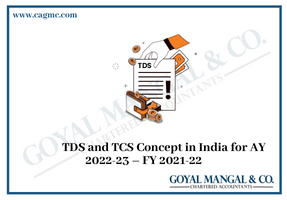One of the most crucial components of financial planning is Income Tax. To save tax, you must maintain track of your income and investments and strategically plan to purchase life insurance, a term plan, or any other tax-saving investment. The Income Tax is not the government’s only source of revenue. It also collects indirect taxes…
Political Parties and Election Campaigns are an essential aspect of the Indian democratic system, and to encourage larger contributions to political parties, Section 80 GGB of the Income Tax Act, 1961, provides an exemption from taxation. This provision primarily addresses donations and contributions made by Indian companies to political parties or electoral trusts. In this article, we’ll discuss…
TDS on payments made to non-residents is always a difficult matter. The income tax regulations for residents and non-residents (NRIs) differ slightly. Section 195 of the Income Tax Act, 1961 (the Act) specifies tax breaks for non-resident Indians (NRIs). This section discusses the tax rates and deductions applicable to everyday commercial transactions with a non-resident. In…
The e-invoicing system under GST was implemented on 1 October 2020 to taxpayers with a combined profit of more than Rs.500 crore. Electronic invoices extended to businesses with combined profit exceeding Rs.100 crore with effect from 1 January 2021. This article discusses what is E-invoicing and which all businesses are required to generate e-invoicing. Table…
Many salaried and retiring taxpayers have filed their Income Tax Return (ITR) and are obliged to make certain mistakes due to the lack of proper knowledge of tax laws, which is difficult however for even tax professionals. In this article, we will discuss revenue as part of a tax return but most taxpayers do not…
Companies must file annual reports, quarterly reports, management discussion and analysis, and other filings with authorities and investors. Most businesses prepare these financial reports manually, which means they suffer challenges common to manual processes, such as a high chance of error, extended cycle times, and, most significantly, a lack of a reporting standard. With the…
All losses incurred as a result of exempted sources of income cannot be set off against taxable income. If an income source is exempt, the loss cannot be set off against taxable income. In this article we’ll discuss about the Set-off and Carry Forward of Losses for Five Heads of Income. Before we move ahead let us…
PF stands for Provident Fund. Similarly, ESI stands for Employees’ State Insurance. The government made these to ensure that the workers are financially secured while they are working and after their retirement. If you are running your own business, you should register for PF/ESI. These schemes help you secure the futures of your employees. In…
The Ministry of Corporate Affairs via notice on January 22, 2021 inserted an explanation under Rule 16 of the Companies (Acceptance of Deposits) Rules, 2014. This notification states that all companies, except the government company, are under an obligation to submit form DPT-3 on a yearly basis for transactions that are not deems deposits, i.e. exempted deposits. …
Before we discuss Labour Laws in India, we must ask, “Who is a labour?” A labourer is a person who does unskilled manual work for a wage. The labour is law is applicable to all employees both skilled and unskilled, however, it’s primary focus is on the unskilled workers that does manual work. Further, the…









